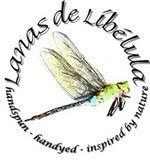Monday, May 10, 2004
We're back!
We had some pretty amazing experiences, and we learned a lot about each other.
And we're getting a divorce.
No, just kidding. Actually, it sounds smarmy, but we really learned a lot about trusting each other and our instincts, and--who cares!?! This is a spinning and knitting sort of blog, right?
Check this out:

That's a weaving in progress we saw at Arnulfo Mendez's workshop and storefront La Mano Magica in Oaxaca City. His work is absolutely incredible. After we looked at his weavings, we couldn't really get too excited about the other pieces we saw in Oaxaca City. When we go back and explore Teotitlan del Valle hopefully we'll have saved enough to buy something spectacular and close to his caliber of work.
As part of the fiber tour group in Chiapas (led/organised by Eric Mindling we saw some amazing parts of Chiapas. A regular whirlwind tour: Palenque, Misol-ha, Agua Clara, Agua Azul, San Cristobal de las Casas, Chamula, Zinacantan, Tenejapa, San Andres, Aguacatenango, Amatenango, Comitan, Chincultic, Tenam Puente, and Santa Magdalena...not necessarily in order.
Check out these cool ladies of Chamula. One is carding wool while another spins it:

Also in Chiapas, the little group was invited to lunch at the house of Pedro Meza, the man who runs Sna Jolobil, a weavers (and other crafts as well) co-op in San Cristobal.

Writing that last sentence really makes me think how we (as in, this on-line americanised world of lists and blogs and Jo-Ann's and Michael's) have devalued the word "crafts." When I see the word "crafts," honestly, I think "crap." --people glitter-glueing magazine scraps to old tissue boxes or crocheting loo roll covers-- but the weavers and other craftspeople of Sna Jolobil (pronounced Snah Ho-lo-beel) produce amazing works of textile art. And co-operatives actually mean a lot to members and make a sort of difference in their lives that I'm not really qualified to delineate. We were told that traditionally, Mayan women generally aren't allowed outside of their family much, and families can be so isolated as to form their own dialects, but co-ops forming and the meetings can get women out of the homes to meet and talk to other women outside of their own families, and provide a little bit of income too.
Anyway, we had a wonderful time. But we're really glad to be back home.
|
And we're getting a divorce.
No, just kidding. Actually, it sounds smarmy, but we really learned a lot about trusting each other and our instincts, and--who cares!?! This is a spinning and knitting sort of blog, right?
Check this out:

That's a weaving in progress we saw at Arnulfo Mendez's workshop and storefront La Mano Magica in Oaxaca City. His work is absolutely incredible. After we looked at his weavings, we couldn't really get too excited about the other pieces we saw in Oaxaca City. When we go back and explore Teotitlan del Valle hopefully we'll have saved enough to buy something spectacular and close to his caliber of work.
As part of the fiber tour group in Chiapas (led/organised by Eric Mindling we saw some amazing parts of Chiapas. A regular whirlwind tour: Palenque, Misol-ha, Agua Clara, Agua Azul, San Cristobal de las Casas, Chamula, Zinacantan, Tenejapa, San Andres, Aguacatenango, Amatenango, Comitan, Chincultic, Tenam Puente, and Santa Magdalena...not necessarily in order.
Check out these cool ladies of Chamula. One is carding wool while another spins it:

Also in Chiapas, the little group was invited to lunch at the house of Pedro Meza, the man who runs Sna Jolobil, a weavers (and other crafts as well) co-op in San Cristobal.

Writing that last sentence really makes me think how we (as in, this on-line americanised world of lists and blogs and Jo-Ann's and Michael's) have devalued the word "crafts." When I see the word "crafts," honestly, I think "crap." --people glitter-glueing magazine scraps to old tissue boxes or crocheting loo roll covers-- but the weavers and other craftspeople of Sna Jolobil (pronounced Snah Ho-lo-beel) produce amazing works of textile art. And co-operatives actually mean a lot to members and make a sort of difference in their lives that I'm not really qualified to delineate. We were told that traditionally, Mayan women generally aren't allowed outside of their family much, and families can be so isolated as to form their own dialects, but co-ops forming and the meetings can get women out of the homes to meet and talk to other women outside of their own families, and provide a little bit of income too.
Anyway, we had a wonderful time. But we're really glad to be back home.
free hit counter
 spaazlicious
spaazlicious




















